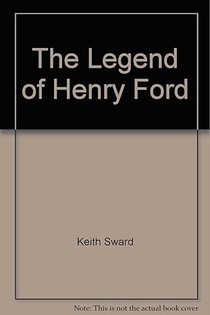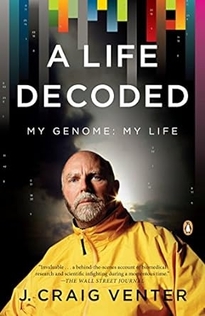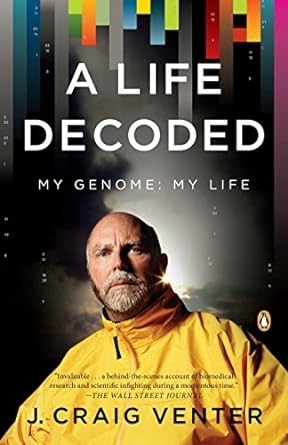
TOP 15 Sam Altman's Favorite Books - Part 3
0
likes
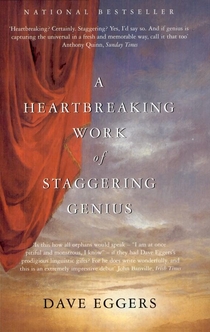
A Heartbreaking Work of Staggering Genius
Dave Eggers is a terrifically talented writer; don't hold his cleverness against him. What to make of a book called A Heartbreaking Work of Staggering Genius: Based on a True Story? For starters, there's a good bit of staggering genius before you even get to the true story, including a preface, a list of "Rules and Suggestions for Enjoyment of This Book," and a 20-page acknowledgements section complete with special mail-in offer, flow chart of the book's themes, and a lovely pen-and-ink drawing of a stapler (helpfully labeled "Here is a drawing of a stapler:"). But on to the true story. At the age of 22, Eggers became both an orphan and a 'single mother' when his parents died within five months of one another of unrelated cancers. In the ensuing sibling division of labor, Dave is appointed unofficial guardian of his 8-year-old brother, Christopher. The two live together in semi-squalor, decaying food and sports equipment scattered about, while Eggers worries obsessively about child-welfare authorities, molesting babysitters, and his own health. His child-rearing strategy swings between making his brother's upbringing manically fun and performing bizarre developmental experiments on him
See all
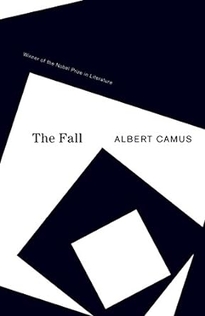
The Fall
NOBEL PRIZE-WINNING AUTHOR • One of the most widely read novels of all time—from one of the best-known writers of all time—about a lawyer from Paris who brilliantly illuminates the human condition. Elegantly styled, Camus' profoundly disturbing novel of a Parisian lawyer's confessions is a searing study of modern amorality.
See all
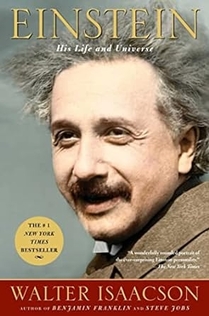
Einstein
The definitive, internationally bestselling biography of Albert Einstein. Now the basis of Genius, the ten-part National Geographic series on the life of Albert Einstein, starring the Oscar, Emmy, and Tony Award–winning actor Geoffrey Rush as Einstein.How did his mind work? What made him a genius? Isaacson’s biography shows how Einstein’s scientific imagination sprang from the rebellious nature of his personality. His fascinating story is a testament to the connection between creativity and freedom. Einstein explores how an imaginative, impertinent patent clerk—a struggling father in a difficult marriage who couldn’t get a teaching job or a doctorate—became the mind reader of the creator of the cosmos, the locksmith of the mysteries of the atom, and the universe. His success came from questioning conventional wisdom and marveling at mysteries that struck others as mundane. This led him to embrace a morality and politics based on respect for free minds, free spirits, and free individuals. Einstein, the classic #1 New York Times bestseller, is a brilliantly acclaimed account of the most influential scientist of the twentieth century, “an illuminating delight” (The New York Times). The basis for the National Geographic series Genius, by the author of The Innovators, Steve Jobs, and Benjamin Franklin, this is the definitive biography of Albert Einstein.
See all
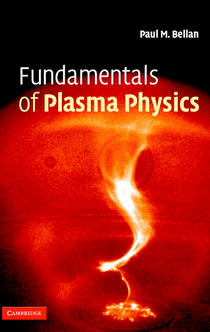
Fundamentals of Plasma Physics
This rigorous explanation of plasmas is relevant to diverse plasma applications such as controlled fusion, astrophysical plasmas, solar physics, magnetospheric plasmas, and plasma thrusters. More thorough than previous texts, it exploits new powerful mathematical techniques to develop deeper insights into plasma behavior. After developing the basic plasma equations from first principles, the book explores single particle motion with particular attention to adiabatic invariance. The author then examines types of plasma waves and the issue of Landau damping. Magnetohydrodynamic equilibrium and stability are tackled with emphasis on the topological concepts of magnetic helicity and self-organization. Advanced topics follow, including magnetic reconnection, nonlinear waves, and the Fokker–Planck treatment of collisions. The book concludes by discussing unconventional plasmas such as non-neutral and dusty plasmas. Written for beginning graduate students and advanced undergraduates, this text emphasizes the fundamental principles that apply across many different contexts.
See all

Anna Karenina
At its simplest, Anna Karenina is a love story. It is a portrait of a beautiful and intelligent woman whose passionate love for a handsome officer sweeps aside all other ties - to her marriage and to the network of relationships and moral values that bind the society around her. The love affair of Anna and Vronsky is played out alongside the developing romance of Kitty and Levin, and in the character of Levin, closely based on Tolstoy himself, the search for happiness takes on a deeper philosophical significance. One of the greatest novels ever written, Anna Karenina combines penetrating psychological insight with an encyclopedic depiction of Russian life in the 1870s. The novel takes us from high society St Petersburg to the threshing fields on Levin's estate, with unforgettable scenes at a Moscow ballroom, the skating rink, a race course, a railway station. It creates an intricate labyrinth of connections that is profoundly satisfying, and deeply moving. Rosamund Bartlett's new translation conveys Tolstoy's precision of meaning and emotional accuracy in an English version that is highly readable and stylistically faithful. Like her acclaimed biography of Tolstoy, it is vivid, nuanced, and compelling.
See all

Hunger of Memory
Hunger of Memory is the story of Mexican-American Richard Rodriguez, who begins his schooling in Sacramento, California, knowing just 50 words of English, and concludes his university studies in the stately quiet of the reading room of the British Museum. Here is the poignant journey of a “minority student” who pays the cost of his social assimilation and academic success with a painful alienation — from his past, his parents, his culture — and so describes the high price of “making it” in middle-class America. Provocative in its positions on affirmative action and bilingual education, Hunger of Memory is a powerful political statement, a profound study of the importance of language ... and the moving, intimate portrait of a boy struggling to become a man.
See all
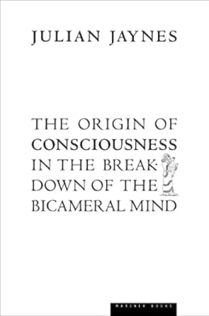
The Origin of Consciousness in the Breakdown of the Bicameral Mind
National Book Award Finalist: “This man’s ideas may be the most influential, not to say controversial, of the second half of the twentieth century.”—Columbus Dispatch At the heart of this classic, seminal book is Julian Jaynes's still-controversial thesis that human consciousness did not begin far back in animal evolution but instead is a learned process that came about only three thousand years ago and is still developing. The implications of this revolutionary scientific paradigm extend into virtually every aspect of our psychology, our history and culture, our religion—and indeed our future. “Don’t be put off by the academic title of Julian Jaynes’s The Origin of Consciousness in the Breakdown of the Bicameral Mind. Its prose is always lucid and often lyrical…he unfolds his case with the utmost intellectual rigor.”—The New York Times “When Julian Jaynes . . . speculates that until late in the twentieth millennium BC men had no consciousness but were automatically obeying the voices of the gods, we are astounded but compelled to follow this remarkable thesis.”—John Updike, The New Yorker “He is as startling as Freud was in The Interpretation of Dreams, and Jaynes is equally as adept at forcing a new view of known human behavior.”—American Journal of Psychiatry
See all
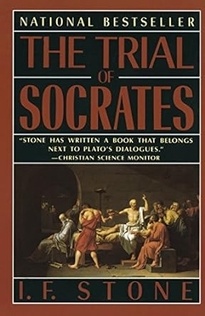
The Trial of Socrates
In unraveling the long-hidden issues of the most famous free speech case of all time, noted author I.F. Stone ranges far and wide over Roman as well as Greek history to present an engaging and rewarding introduction to classical antiquity and its relevance to society today. The New York Times called this national best-seller an "intellectual thriller."
See all
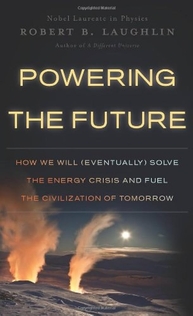
Powering the Future
In Powering the Future, Nobel laureate Robert B. Laughlin transports us two centuries into the future, when we've ceased to use carbon from the ground -- either because humans have banned carbon burning or because fuel has simply run out. Boldly, Laughlin predicts no earth-shattering transformations will have taken place. Six generations from now, there will still be soccer moms, shopping malls, and business trips. Firesides will still be snug and warm. How will we do it? Not by discovering a magic bullet to slay our energy problems, but through a slew of fascinating technologies, drawing on wind, water, and fire. Powering the Future is an objective yet optimistic tour through alternative fuel sources, set in a world where we've burned every last drop of petroleum and every last shovelful of coal.The Predictable:Fossil fuels will run out. The present flow of crude oil out of the ground equals in one day the average flow of the Mississippi River past New Orleans in thirteen minutes. If you add the energy equivalents of gas and coal, it's thirty-six minutes. At the present rate of consumption, we'll be out of fossil fuels in two centuries" time. We always choose the cheapest gas. From the nineteenth-century consolidation of the oil business to the California energy crisis of 2000-2001, the energy business has shown, time and again, how low prices dominate market share. Market forces -- not green technology -- will be the driver of energy innovation in the next 200 years.The laws of physics remain fixed. Energy will still be conserved, degrade entropically with use, and have to be disposed of as waste heat into outer space. How much energy a fuel can pack away in a given space is fixed by quantum mechanics -- and if we want to keep flying jet planes, we will need carbon-based fuels.The Potential:Animal waste.If dried and burned, the world's agricultural manure would supply about one-third as much energy as all the coal we presently consume.Trash. The United States disposes of 88 million tons of carbon in its trash per year. While the incineration of waste trash is not enough to contribute meaningfully to the global demand for energy, it will constrain fuel prices by providing a cheap supply of carbon.Solar energy.The power used to light all the cities around the world is only one-millionth of the total power of sunlight pouring down on earth's daytime side. And the amount of hydropump storage required to store the world’s daily electrical surge is equal to only eight times the volume of Lake Mead.
See all

Man's Search for Meaning
A book for finding purpose and strength in times of great despair, the international best-seller is still just as relevant today as when it was first published.“This is a book I reread a lot . . . it gives me hope . . . it gives me a sense of strength.”—Anderson Cooper, Anderson Cooper 360/CNNThis seminal book, which has been called “one of the outstanding contributions to psychological thought” by Carl Rogers and “one of the great books of our time” by Harold Kushner, has been translated into more than fifty languages and sold over sixteen million copies. “An enduring work of survival literature,” according to the New York Times, Viktor Frankl’s riveting account of his time in the Nazi concentration camps, and his insightful exploration of the human will to find meaning in spite of the worst adversity, has offered solace and guidance to generations of readers since it was first published in 1946. At the heart of Frankl’s theory of logotherapy (from the Greek word for “meaning”) is a conviction that the primary human drive is not pleasure, as Freud maintained, but rather the discovery and pursuit of what the individual finds meaningful. Today, as new generations face new challenges and an ever more complex and uncertain world, Frankl’s classic work continues to inspire us all to find significance in the very act of living, in spite of all obstacles.This gift edition come with endpapers, supplementary photographs, and several of Frankl’s previously unpublished letters, speeches, and essays. This book was published with two different covers. Customers will be shipped one of the two at random.
See all

Plan B 3.0: Mobilizing to Save Civilization
Provides alternative solutions to such global problems as population control, emerging water shortages, eroding soil, and global warming, outlining a detailed survival strategy for the civilization of the future.
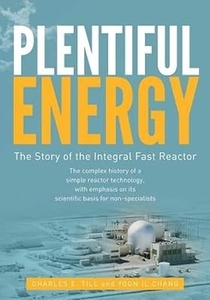
Plentiful Energy
The Integral Fast Reactor (IFR) is a fast reactor system developed at Argonne National Laboratory in the decade 1984 to 1994. The IFR project developed the technology for a complete system; the reactor, the entire fuel cycle and the waste management technologies were all included in the development program. The reactor concept had important features and characteristics that were completely new and fuel cycle and waste management technologies that were entirely new developments. The reactor is a "fast" reactor - that is, the chain reaction is maintained by "fast" neutrons with high energy - which produces its own fuel. The IFR reactor and associated fuel cycle is a closed system. Electrical power is generated, new fissile fuel is produced to replace the fuel burned, its used fuel is processed for recycling by pyroprocessing - a new development - and waste is put in final form for disposal. All this is done on one self-sufficient site.The scale and duration of the project and its funding made it the largest nuclear energy R and D program of its day. Its purpose was the development of a long term massive new energy source, capable of meeting the nation's electrical energy needs in any amount, and for as long as it is needed, forever, if necessary. Safety, non-proliferation and waste toxicity properties were improved as well, these three the characteristics most commonly cited in opposition to nuclear power.Development proceeded from success to success. Most of the development had been done when the program was abruptly cancelled by the newly elected Clinton Administration. In his 1994 State of the Union address the president stated that "unnecessary programs in advanced reactor development will be terminated." The IFR was that program.This book gives the real story of the IFR, written by the two nuclear scientists who were most deeply involved in its conception, the development of its R and D program, and its management.Between the scientific and engineering papers and reports, and books on the IFR, and the non-technical and often impassioned dialogue that continues to this day on fast reactor technology, we felt there is room for a volume that, while accurate technically, is written in a manner accessible to the non-specialist and even to the non-technical reader who simply wants to know what this technology is.
See all

The Death and Life of Great American Cities
Thirty years after its publication, The Death and Life of Great American Cities was described by The New York Times as "perhaps the most influential single work in the history of town planning....[It] can also be seen in a much larger context. It is first of all a work of literature; the descriptions of street life as a kind of ballet and the bitingly satiric account of traditional planning theory can still be read for pleasure even by those who long ago absorbed and appropriated the book's arguments." Jane Jacobs, an editor and writer on architecture in New York City in the early sixties, argued that urban diversity and vitality were being destroyed by powerful architects and city planners. Rigorous, sane, and delightfully epigrammatic, Jacobs's small masterpiece is a blueprint for the humanistic management of cities. It is sensible, knowledgeable, readable, indispensable. The author has written a new foreword for this Modern Library edition.
See all

